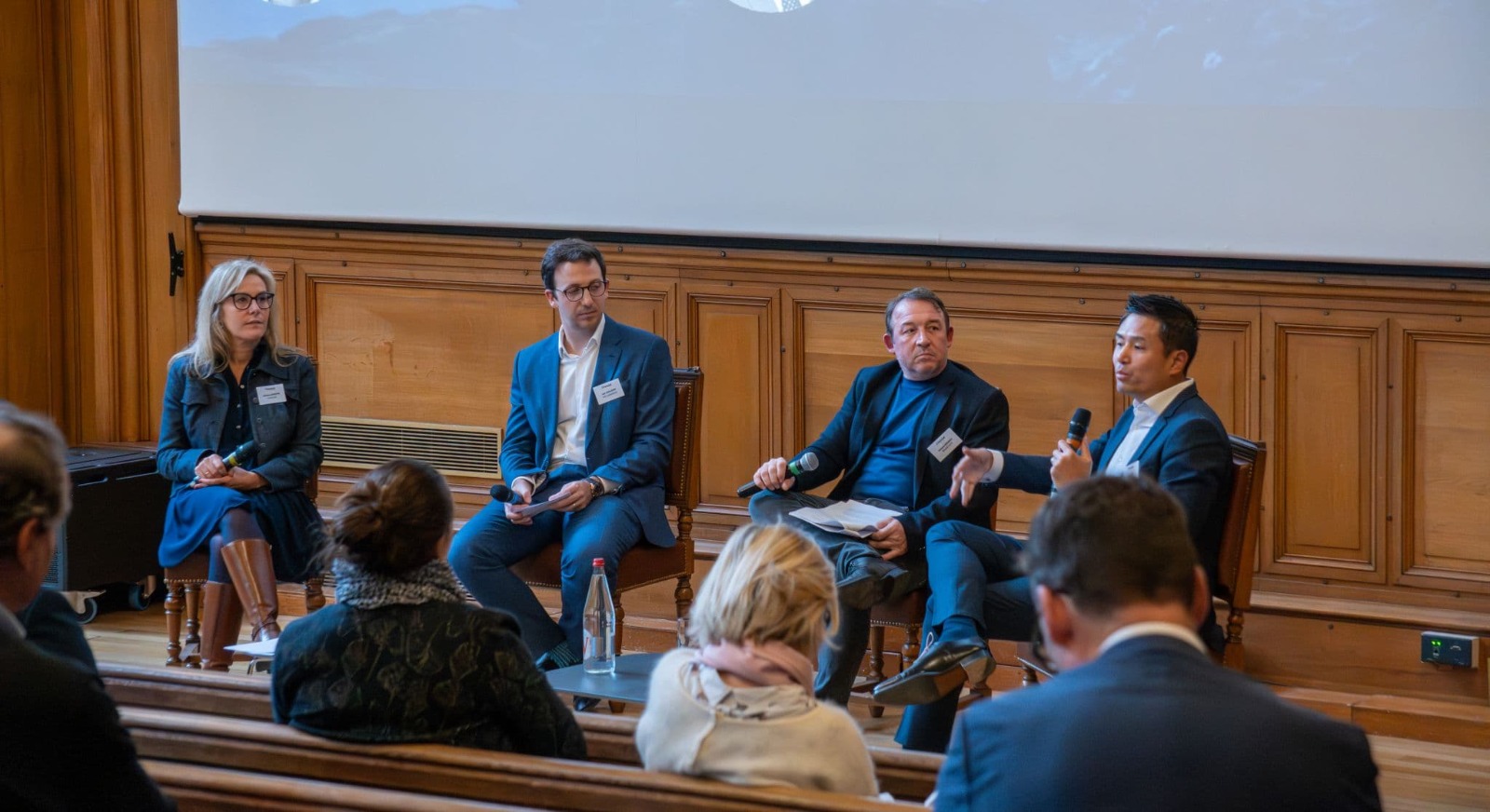
On October 16, 2025, Finovox organized its sixth anti-fraud morning at the Ocean House, in Paris. On this occasion, several experts in the fight against fraud met.
During this event, Finovox invited four speakers to answer the question: why is documentary fraud a major issue today, in France and internationally? The aim was to offer a concrete overview of the threats that currently weigh on businesses and institutions. To find the content of this round table, continue reading.
Document fraud is no longer a marginal phenomenon: it has become industrialized.
With the rise of digital tools and generative AI, false documents such as identities, receipts of income, and invoices now circulate on an unprecedented scale.
Behind this observation, an essential question persists: how to restore trust in a world where evidence is dematerializing?
To answer this question, Finovox, software for documentary check, brought together four speakers from various sectors:
The discussions highlighted a common reality: document fraud has become an economic and reputational risk for all organizations.
In the insurance sector, Pekko Thai observes a Increase in false medical documents such as sick leave certificates and, in particular, renewals of sick leave.
But they are not the only ones! Les fake financial documents are also developing on a large scale. In particular, they make it possible to justify income under an individual pension contract.
On the consumer credit side, Karim Tinouiline mentions a clear increase in fraud:
“We are seeing more and more fake IDs or pay slips retouched using digital tools or AI. Some fake document kits are even sold online, ready to use.”
The objective? Obtaining financing with no real ability to repay.
Faced with these threats, players in the sector are forced to combine automated checks and human vigilance.
For Loïc Guillemin, documentary fraud has experienced real industrialization over the past two years, linked to the rise of generative AI.
“In France, falsifications have increased by 240% between 2023 and 2024 ”, he underlines.
The phenomenon now affects all of Europe. Au luxemburg, 15% of fraud cases handled by the police involve false documents. En Poland and Ukraine, transnational networks produce and sell fake official documents (fake medical certificates or fake diplomas) often via clandestine platforms.
Antoine Andrieu confirms this trend:
“Document fraud has become global. It affects credit, insurance, but also recruitment. With remote work, we are seeing cases of identity theft for hiring purposes.”
According to iCover data, 6% of permits checked between 2024 and 2025 showed signs of forgery, representing a 900% increase in fraud cases over the period.
It should also be noted that 63% of fraud now involves digital documents, used during digital onboarding processes.
The consequences of these frauds are multiple: financial, reputational and operational.
Antoine Andrieu illustrates these risks with several concrete examples:
These examples show how document fraud goes beyond the simple falsification of papers: it threatens global economic security.
At the regulatory level, experts note significant disparities.
According to Loïc, France, despite a solid framework (Criminal Code, Sapin II), remains hampered by a lack of operational resources and the still limited sharing of information between financial actors.
As for the Anglo-Saxon countries (United Kingdom, United States), they have more dissuasive systems, which combine severe sanctions and institutional coordination.
Antoine confirms this trend by pointing out that both the United Kingdom and Australia are distinguished by a particularly demanding regulatory framework in terms of identity verification and the fight against illegal work.
In these countries, the employer has a clear responsibility: every company must demonstrate that it has put in place effective procedures to prevent the hiring of unauthorized workers.
In the United Kingdom, this system is based on the DIATF (Digital Identity and Attributes Trust Framework), managed by the Home Office, i.e. the British Home Office.
This framework sets specific standards for identity verification and requires employers to apply a KYC (Know Your Customer) process that is strictly in accordance with national regulations.
In the fight against fraud, some countries are pioneers in document verification and digital identity security.
Estonia is often cited as a global reference. Thanks to its universal digital identity, each citizen can access all public and private services via a single and secure authentication system. The Estonian passport remains the most difficult to falsify in the EU.
For its part, Luxembourg has launched GouvCheck, a device based on a QR code attached to official documents. This system allows any organization, public or private, to instantly verify the authenticity of a document via a simple application. Combined with a national anti-fraud platform, Cyberfraud.lu, this mechanism reinforces the transparency and traceability of verifications.
In the United Arab Emirates, the fight against fraud is based on an integrated and biometric approach. The authorities combined facial data, fingerprints and centralized digital identity (via the ICA card and the UAE Pass app).
This model, which is fully interconnected between public, banking and mobile operators, considerably reduces the risks of document falsification.
At the end of the round table at the Maison de l'Océan, all the speakers emphasized the need for collective mobilization.
Faced with regulations that sometimes struggle to keep up, Pekko Thai calls for greater clarity and consistency in legal frameworks.
According to him, businesses need legible and harmonized rules in order to act effectively: “A concrete regulatory arsenal that is easy to use.”
Loïc Guillemin insists on the priority of digital identity, while Antoine Andrieu calls for “the release of data in a supervised manner to streamline verifications”.
By organizing this meeting at the Maison de l'Océan, Finovox confirms its role as a reference in the fight against documentary fraud.
Its document verification software is fully in line with this approach: combining AI, human expertise and interconnection to secure digital paths while maintaining the user experience.
Need to find out more about this solution? Ask for a demo!